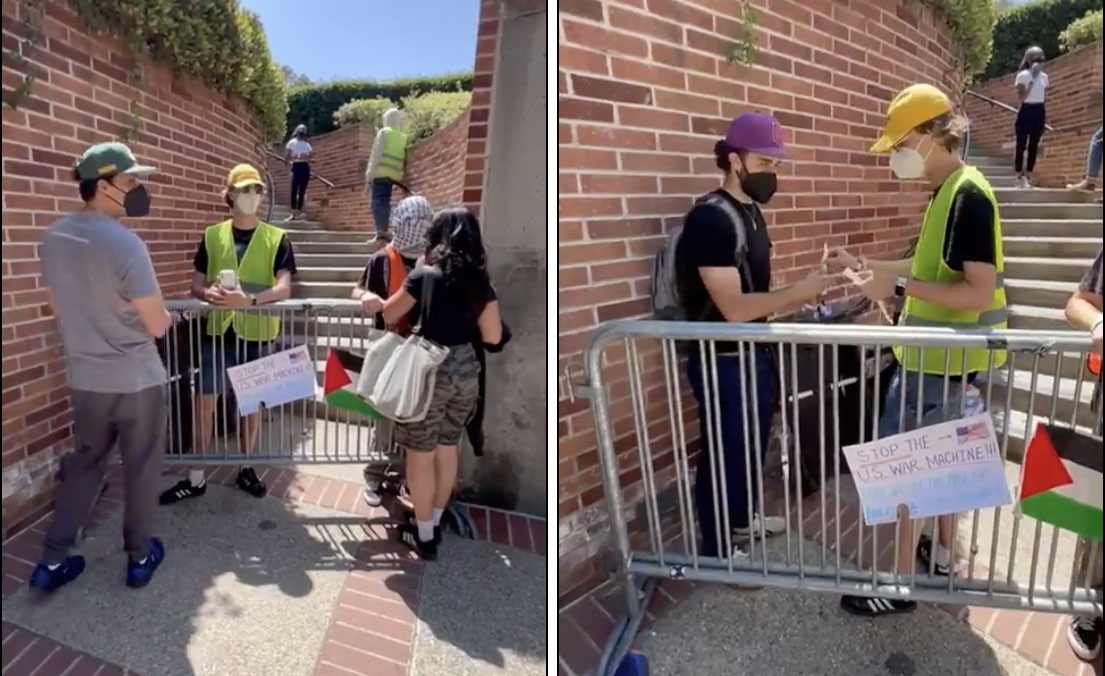70 years ago this week, the Auschwitz-Birkenau death camp was liberated. From the ashes of the murdered arose the words “Never Again” – spoken as shorthand for our collective responsibility to act in the face of genocide. However, on the world stage, the words “Never Again” soon were replaced by a reality of “Yet Again”, as the horrors of the Holocaust were followed by genocide after genocide, atrocity after atrocity – from Cambodia to Rwanda, from Darfur to Congo. Since 1945, 46 genocides have claimed the lives of tens of millions.
Until 2004, I was among those who failed to act. Like many Jews who grew up in the 1950s, I internalized a deep sense of responsibility to safeguard the memory of the Shoah – so that the world would understand anti-Semitism’s dangers and prevent Jewish persecution in the future. Yet, when I heard about atrocities in faraway places like Cambodia and Rwanda, the notion that I could do something – that I should do something – never materialized in my head. My mindset shifted because of one man, Rabbi Harold Schulweis – with whom I co-founded Jewish World Watch. As he changed my perspective, Rabbi Schulweis dramatically changed my life – and saved thousands of others.
In the wake of Rabbi Schulweis’ passing last month, our emotions at Jewish World Watch have run the gamut: great sadness at the loss of a truly extraordinary human being, gratitude for our opportunity to know and love such a deeply influential Jewish leader – and more than anything, resolve to amplify his message.
Somehow I wish that we could transport the entire American Jewish community to the Congregation of Valley Beth Shalom on Rosh Hashanah in 2004, when Rabbi Schulweis asked, “Where were you when one million innocents were slaughtered in Rwanda?” Like many others sitting in the congregation, I felt a pit in my stomach as I thought of my response to his question. Then he challenged us, “What will you do today to stop the first genocide of the 21st century – the genocide in Darfur?”
In that room, at that moment, no one could look the other way as Rabbi Schulweis spoke about another people being targeted for destruction. From his moral call, we resolved that Jewish World Watch would protect those threatened by genocide and mass atrocities in all corners of the planet. We would educate our community, lobby policymakers, and provide moral support and direct assistance to survivors on the ground.
In 2004, at 80-years-old, Rabbi Schulweis founded an organization – a movement – that has become one of America’s largest and loudest anti-genocide groups. In the decade since that Rosh Hashanah, Jewish World Watch has been at the forefront of advocacy efforts that helped to bring about pressure to end the genocide in Darfur, drive the most lethal militias out of Congo, and create broad awareness among governments and global corporations about the threat of emerging genocides around the world.
We’ve raised many millions of dollars for projects to aid more than 500,000 survivors of genocide and mass atrocities – from educational programs that allow former sex slaves and rape victims in Congo to reclaim their futures; to Solar Cookers, a simple invention that has dramatically improved the safety of Darfuri refugees, allowing women and girls to avoid the frequent assaults that result from leaving their refugee camps to search for firewood.
Even as his health began to falter, Rabbi Schulweis remained deeply involved in our work, day after day. His intellect and oratory animated our marches, rallies, and seminars. His warmth and humility cemented our coalitions with people of all faiths and races. His excitement and encouragement inspired our board members to take frequent trips to Africa – and to report back to him about the people we met and the projects we were pursuing. His bold conscience insisted that we continue to dig deeper to find the godliness and goodliness in our souls.
As a human being, it is natural to become mired in your own struggle – in righting the wrongs that have been done to your people. With global anti-Semitism on the rise – as we see Jews continue to be murdered only because of their faith – the impulse to hunker down and focus only on our own is real and understandable.
Yet, Rabbi Schulweis spoke out against that kind of thinking. He drew the connections between genocides. He pushed our community to see that the Jewish quest for justice will never be complete if we stand idly by when others are in danger – and that the Jewish drive to protect ourselves will not succeed in a fractured and Balkanized world.
We live during a time in grave need of Rabbi Schulweis’ message. From Congo and Sudan, from Iraq to Syria, from Burma to the Central African Republic, we are called to take the words “Never Again” and turn them into action. In his memory, let us continue to breathe life into the best of our Jewish values to create a better world.
Janice Kamenir-Reznik, Esq., is the President and Co-Founder of Jewish World Watch – a multi-faith coalition representing hundreds of thousands in the fight against genocide and mass atrocities.






















 More news and opinions than at a Shabbat dinner, right in your inbox.
More news and opinions than at a Shabbat dinner, right in your inbox.